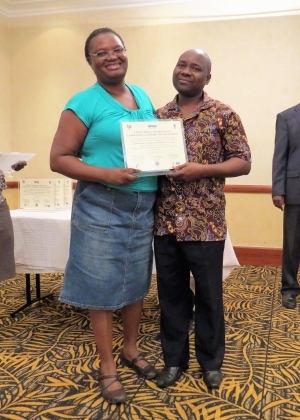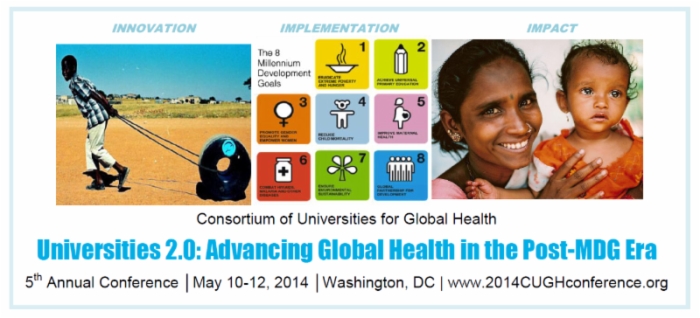 On June 17, Dr. Robert Martin, University of Washington professor and Director of Laboratory Systems Strengthening at UW’s International Training and Education Center for Health (I-TECH), will receive the American Society for Microbiology’s 2016 Hologic Joseph Public Health Award at the ASM Microbe 2016 conference in Boston.
On June 17, Dr. Robert Martin, University of Washington professor and Director of Laboratory Systems Strengthening at UW’s International Training and Education Center for Health (I-TECH), will receive the American Society for Microbiology’s 2016 Hologic Joseph Public Health Award at the ASM Microbe 2016 conference in Boston.
The award takes its name from J. Mehsen Joseph, who directed the Maryland State Laboratory for decades and was instrumental in working with the U.S. Centers for Disease Control and Prevention (CDC) to expand the role of public health laboratories.
“When someone receives an honor like this, it reflects not only on the individual but on the institution and its leadership, which have provided an environment for accomplishments,” said Dr. Martin. “That has certainly been true of UW and I-TECH.
“This award means a lot to me,” Dr. Martin continued, “because as director of the Michigan Public Health Laboratories, I knew and worked closely with Dr. Joseph on a number of national projects through the Association of Public Health Laboratories. He was a great individual and a great leader for public health laboratory science.”
Prior to his post at UW, Dr. Martin served as director of the Division of Laboratory Systems at the CDC, launching the National Laboratory System to link private and public sector laboratories. His engagement of participating private sector laboratories established working relationships between public and private sector laboratories that extend to the present. He also contributed to integrating the laboratory role into CDC’s Field Epidemiology and Training Program and the inclusion of laboratory systems as part of CDC’s international activities, notably in China, Bangladesh, Cambodia, and Thailand.
Previously Dr. Martin served with the Michigan Department of Community Health, becoming state laboratory director in 1991. There he participated in the development of the first national guidelines for laboratory diagnosis of Lyme disease and established a state-of-the-art molecular testing service.
Dr. Martin will deliver a lecture at ASM Microbe on June 17 titled “Strengthening Laboratory Systems Globally – Thinking Beyond the Bench,” in which he’ll talk about I-TECH’s efforts in laboratory systems strengthening in resource-limited countries.
ASM Microbe 2016 gathers the world’s leading scientists, physicians, and researchers to exchange ideas and keep abreast of the latest developments and cutting-edge research. The Opening Keynote Session, titled “A Conversation with Bill Gates: Bringing the Frontiers of Science to the Front Lines of Development,” will feature Bill Gates in an interview with Dr. Richard Besser, Chief Health and Medical Editor at ABC News.



 On June 17, Dr. Robert Martin, University of Washington professor and Director of Laboratory Systems Strengthening at UW’s International Training and Education Center for Health (I-TECH), will receive the American Society for Microbiology’s 2016 Hologic Joseph Public Health Award at the
On June 17, Dr. Robert Martin, University of Washington professor and Director of Laboratory Systems Strengthening at UW’s International Training and Education Center for Health (I-TECH), will receive the American Society for Microbiology’s 2016 Hologic Joseph Public Health Award at the 
